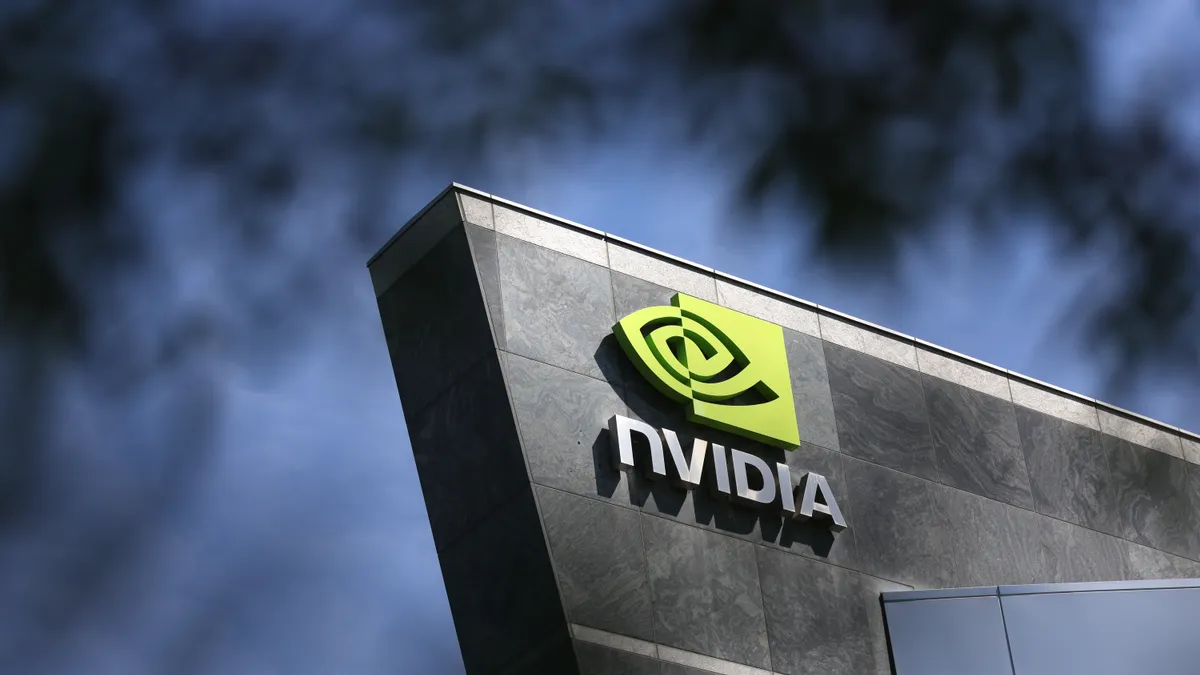Data challenges now top the list of headwinds for financial service companies looking at the benefits and costs of AI, according to a new survey from chip maker Nvidia. A similar survey released by the company last year identified talent and the barriers to recruiting AI specialists and data scientists as their top concern.
The new stance comes as executives are growing more familiar with the technology’s strengths and weaknesses as companies advance along on the path to implement generative AI capabilities.
“They spent last year experimenting, educating their people,” said Malcolm deMayo, vice president of financial services at Santa Clara, California-based Nvidia, noting that ChatGPT had changed everything nearly overnight. “You’re going to start seeing this year, applications go into production.”
The report is based on responses from about 400 global financial services professionals surveyed in October 2023, of which 46% said they were already using large language models, algorithms that can “recognize, summarize, translate, predict, and generate content” using large datasets.
Generative AI, by contrast, refers to a type of AI that can identify patterns and structures within existing data to generate new content. Some 43% of respondents said they were already using generative AI in their organizations, the survey reported. With companies eager to test and roll out the technology, data concerns, including issues around data hygiene, data management and privacy considerations, have become paramount.
Financial firms, deMayo said, are now in a race to deploy AI to yield efficiencies, results that are starting to bear fruit. Some 43% of those surveyed said AI created operational efficiencies, up from 33% last year.
Looking across industries, companies are increasingly acknowledging the connection between AI and efficiency gains, according to PwC’s annual survey released on Monday. Some 68% of the U.S. CEOs surveyed said generative AI will increase efficiencies in employees’ time at work, PwC reported.
“What’s alluring about generative AI is its dual ability to produce efficiency gains that hold down current expenses while simultaneously enabling company reinvention,” the PwC report said.
Among financial services employees surveyed by Nvidia, nearly half said they were using AI solutions for operations, while 45% said they were using it for risk and compliance. The top AI workloads comprised data analytics and data processing.
As for generative AI and large language models, the top uses were report writing; improving customer experience and engagement; and synthetic data, or computer-generated data that can be used to train AI models.
Just 28% of firms surveyed identified “lack of budget” as a barrier to achieving company AI goals. By contrast, some 60% of respondents said they were planning to increase investments in computing infrastructure or optimizing AI workflows.
For CFOs, generative AI development underscores the need to balance a return on investment considerations with giving practitioners the necessary space to experiment, said deMayo.
“It’s in [CFOs’] DNA to look for return on investment and to measure and rank projects by that,” deMayo said. “What it might do is kill creativity and may put a damper on risk-taking and innovation.” Some risk-averse firms, he noted, might prioritize initiatives for which there is a clear upfront ROI.
Another important consideration for CFOs is the cost and effort required to modernize legacy infrastructure, he said.
“[If] I'm a firm and today I have a data center that runs our legacy business, and none of the infrastructure in that data center was designed for generative AI, it has to be transformed. That investment has to be made,” deMayo said.











